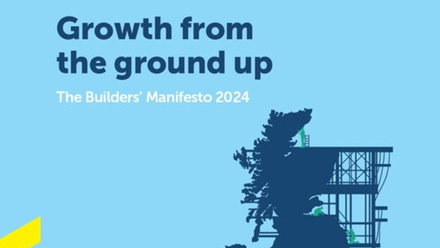The Government have missed a further opportunity to introduce a strategy to decarbonise the nation’s homes, but have rightly renewed their focus on improving the planning system and enhancing the UK’s skills offering, say the Federation of Master Builders in response to the 2022 State Opening of Parliament.
On greening homes, Brian Berry, Chief Executive of the Federation of Master Builders, said: “With serious and widespread economic uncertainty on the horizon, this year’s Queen’s Speech, marked another missed opportunity for the Government to set out a credible plan to green our homes for the future. There remains no credible plan to decarbonise our nation’s existing housing stock. While a 0% VAT rating on energy efficient home improvements was a step in the right direction at the Chancellor’s most recent budget, this measure alone cannot achieve the level of decarbonisation required to meet net zero by 2050. At a time of increased living costs, the majority of homeowners do not have sufficient disposable income to consider these costly energy efficiency home improvement projects, even with a VAT reduction. Forward thinking is an absolute must by Government - expenditure now to tackle energy inefficient homes, using a fabric first approach, will lower bills and reduce energy consumption. This is a long-term endeavour, which unless we see commitment today will leave houses inefficient for some decades. Any funding of new heating technology like heat pumps will be useless, as homes will not be able to fit them being too draughty and leaky. We continue to campaign for a National Retrofit Strategy, which lays out plans for funding coordination and incentivisation for builders and consumers alike when it comes to improving the energy efficiency of homes.”
On planning and housing, Berry continued: “It was good to see a renewed focus, through the Government’s Levelling Up Bill, on planning reform. Small, local housebuilders have been producing fewer and fewer homes for decades, with those in the market facing significant barriers to their work. In the 1980s, 40% of new houses were delivered by SME housebuilders; this figure now sits at a mere 12%. Planning has long been an issue for smaller housebuilders, with 62% of FMB members saying recently reporting that it’s making it harder for them to build homes. Greater investment in local authority planning teams would add capacity and enable faster turnaround times of applications, reducing delays and easing the strain on resources. Considering today’s commitments, I hope to see significant improvements to reverse the decades-long decline of SME housebuilders. These local building firms play a vital role in their local areas, employing school leavers, building good quality homes in the local vernacular and reinvesting their success back into their communities.”
On skills, Berry concluded: “Continued effort to increase the uptake of technical qualifications through the Higher Education Bill is positive to see. The introduction of a Lifelong Loan Entitlement would support many people, at all stages in their life, to train into highly-skilled and often high paid careers. For too long, the construction sector has particularly suffered at the hands of severe skills shortages, with our most recent membership surveys indicating that nearly half of all local builders routinely struggle to hire bricklayers and carpenters. Alongside the Lifelong Loan Entitlement, the Government must focus on encouraging greater numbers of construction employers to train and inspiring greater numbers of young people into careers in the trades. During what is a time of economic hardship for many, it would be useful for Government to re-introduce the training incentives that were successfully in operation throughout the pandemic. It should also be ensured that the Government’s Schools Bill seeks to create greater parity of esteem between these technical education routes and their academic counterparts. Students should be supported into, not deterred from, from technical qualifications.”
Notes to editors
The Federation of Master Builders (FMB) is the largest trade association in the UK construction industry representing thousands of firms in England, Scotland, Wales and Northern Ireland. Established in 1941 to protect the interests of small and medium-sized (SME) construction firms, the FMB is independent and non-profit making, lobbying for members’ interests at both the national and local level.
The FMB is a source of knowledge, professional advice and support for its members, providing a range of modern and relevant business building services to help them succeed. The FMB is committed to raising quality in the construction industry and offers a free Find a Builder service to consumers.




